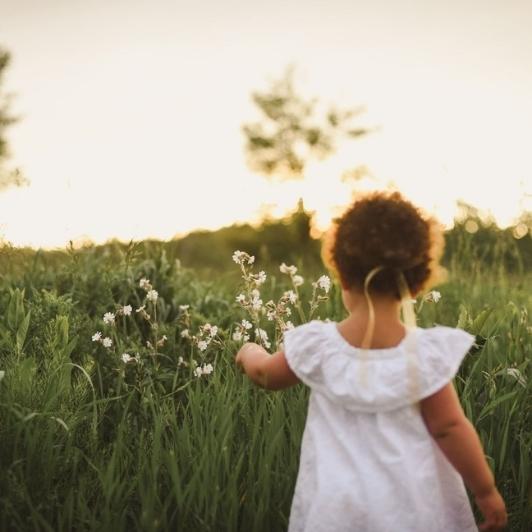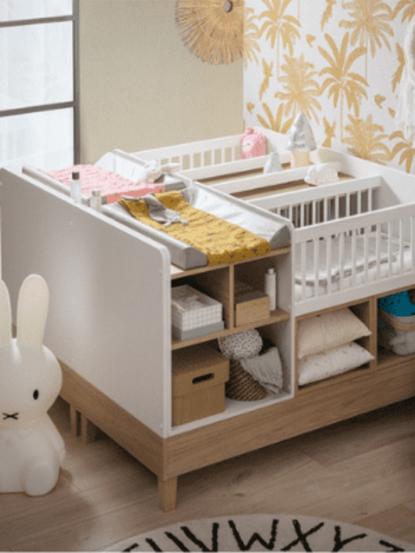The Fair Trade Fortnight
Categories:
News
As a real alternative to the omnipresent and dominant global trade, fair trade is now making more and more sense to consumers. While it's true that the mention of fair trade makes us think, rightly so, of "small" food producers such as coffee, tea, orange juice, or chocolate, it actually concerns many other products.
The furniture sector, for example, Chambrekids' specialty and its Sofamo factory since 1982, is an integral part of it. The Fair Trade Fortnight seemed to us the opportune moment to focus on this subject that is close to our hearts.
In 2001, a common definition described fair trade as "a trading partnership, based on dialogue, transparency and respect, that seeks greater equity in international trade".
In concrete terms, it's about having more equity between the different actors, such as producers, buyers, and various distribution networks like supermarkets. A balance of power that is often uneven... .
According to the World Trade Fair Organization, fair trade is based on different principles, with the main ones being:
Transparency
Equity
A fair price
Respect for workers' conditions and rights
Respect for the environment


The beginnings of fair trade date back much earlier, to the 1950s in the Netherlands. However, it was in the 1990s that the sector began to structure itself, notably with the creation of the "Max Havelaar" label in 1988 in the Netherlands, then in France in 1992, before seeing the creation of Fairtrade International in 1997.
The 1st edition of the Fair Trade Fortnight was born in 2001 but mainly concerned relations with producers from developing countries. In 2014, the Social and Solidarity Economy (SSE) law extended the definition of fair trade to include relationships with producers and manufacturers located in France.
This is where the link between Chambrekids, the Sofamo factory, and fair trade makes perfect sense. How is Chambrekids part of this marketing model? We explain everything!
There are those who say it, and those who do it! Today, it's not uncommon to read and hear about the notion of "Made in France", or to see our pretty French flag affixed to product packaging or on all kinds of advertisements. But is it always true?
While it's sometimes difficult to answer, the question deserves to be asked, as we are now experiencing difficulties in producing on French soil due to an obvious lack of competitiveness: production costs, taxation, supply difficulties... .
For example, our Sofamo factory is now one of the last French manufacturers of furniture for babies & children. While we are proud to have continued this French manufacturing for 40 years since the creation of the factory in 1982, we are at the same time saddened to see our local companies relocating.
Located in Andilly, 15 minutes from La Rochelle, our factory has been manufacturing 100% French baby, child, teen, and adult furniture since day one in its production site of over 9,000 m².
Too often used as a marketing tool, "Made in France" needs to be more transparent, more genuine, and more embraced. Yes, French manufacturing may be more expensive, but it's also more respectful and often a sign of better quality. It's important to realize that "Made in France" also serves the environmental cause.
While French manufacturing effectively contributes to more responsible consumption by significantly limiting our environmental impact, we felt it was important to go much further.
That's why we are committed to manufacturing furniture that respects children's health and the planet's well-being!
Our wood comes exclusively from eco-managed forests. We use solid wood such as beech, pine, or birch.
Indoor air quality is a real issue for children's health, as well as for adults.
It is now widely demonstrated that the air we breathe can have effects on comfort and health. Therefore, we use particleboard or MDF panels with very low VOC emissions (Volatile Organic Compounds). Moreover, the paint used on all our furniture is water-based paint.
At Chambrekids, our mission is to reduce CO2 emissions through all possible means: short supply chain, eco-friendly raw materials, suppliers and partners close to our factory, local manufacturing, and responsible transportation. Want to know more about our eco-responsible approach?

What do we call a fair price at Chambrekids? It's a price that first allows us to buy and use quality raw materials for all our furniture. Solid and ecological wood, particle boards that respect health, and water-based paint.
A fair price at Chambrekids also means allowing us to pay our 35 employees who manufacture your furniture daily, those who answer the phone to assist you with your purchase or to solve any problem, a decent wage. Fair remuneration and optimal working conditions to continue hiring in our territory and thus promote French know-how while developing the local economy.
Maintaining local and non-relocatable employment is part of our very identity. Every purchase on Chambrekids.com directly promotes job creation!
This year, the Fair Trade Fortnight takes place from May 7 to 22, and we are once again participating with great pleasure by highlighting all our responsible furniture. A fortnight that allows necessary spotlight on values that bring us closer, but which must not stop there! We can and must do even better by giving more and more meaning to our consumption.

